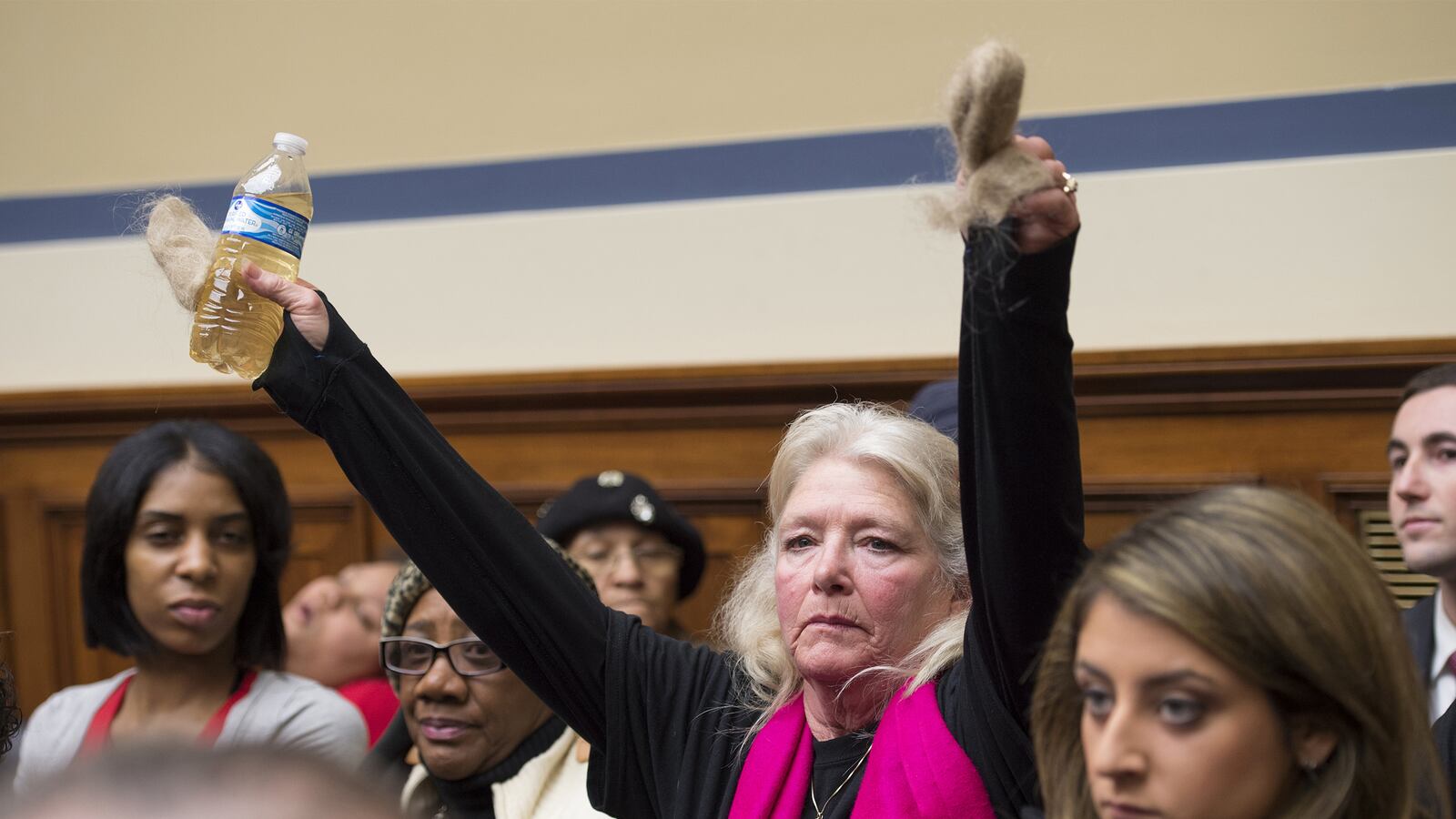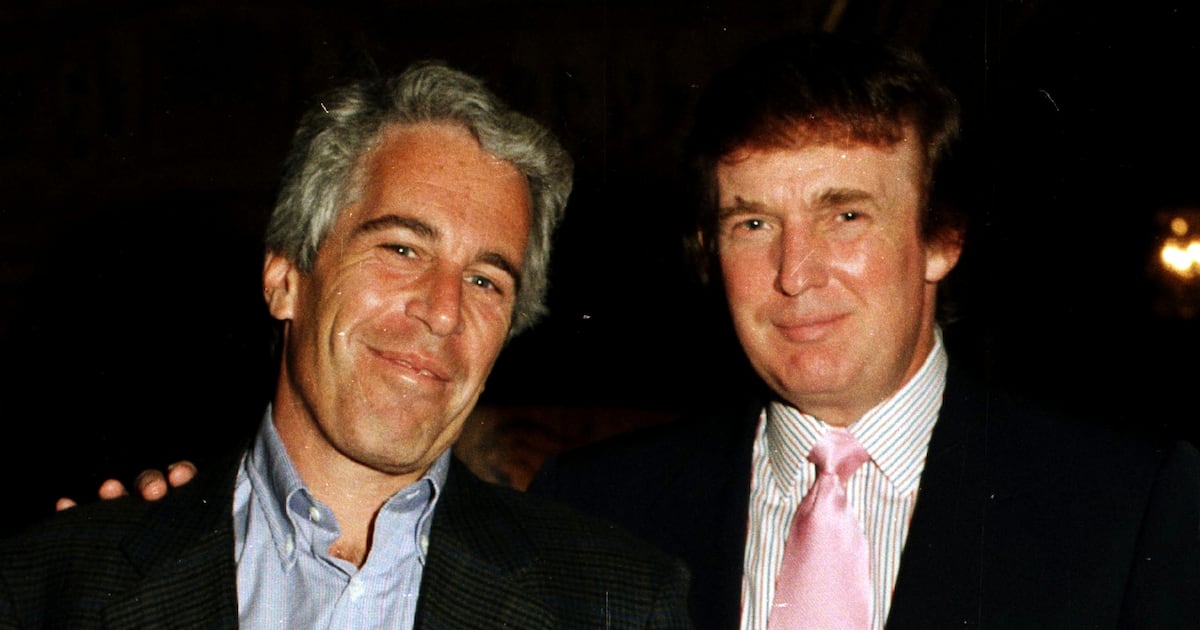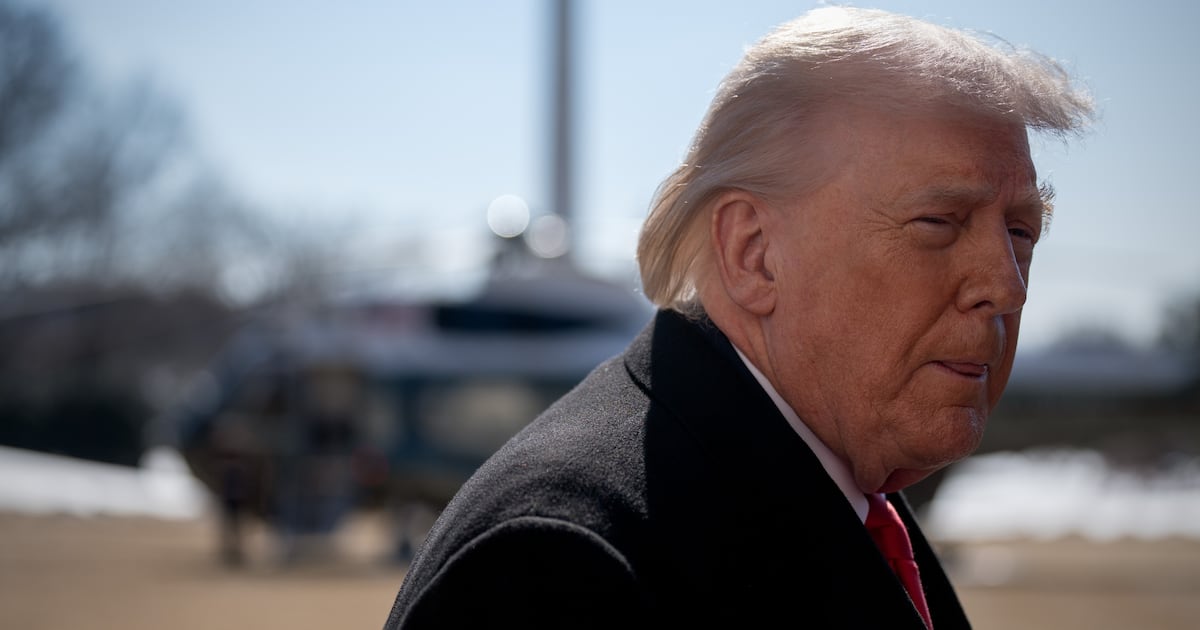FLINT, Michigan — The only thing that the people of Flint need to hear from Hillary Clinton when she arrives here tomorrow is where they can get bottled water.
The crisis in Flint is not over because it has received national media attention or because politicians are now owning up to their failures. It is a present, silent, man-made disaster that is ongoing—and the infrastructure of the response is being handled by every level of government as poorly as the water crisis itself.
Clinton may want to use her vast personal resources and pull with powerful members of the federal government to bring enough bottled water to last the people of Flint for at least a year. At the community meeting she’ll attend tomorrow, Clinton might also want to provide them with a simple public service announcement: If you need water, dial 211.
If you are disabled or homebound and trying to find out about National Guard water deliveries, you will not find such instructions by calling the Flint Police Department, who will redirect you to the Genesee County Sheriff’s Office. And you will not be met with an answer at all when you call the sheriff’s main line on a Saturday, because “no one is there until Monday,” a man in the basement of the jail will tell you.
And when you ask that man whether the National Guard is still here to bring water to your home, he will say, “I have no idea.” After being directed by the man at the jail to the Red Cross, you will finally be told to call 211, where a woman will ask for your address and finally tell you water—and the help Flint has been promised—is on its way.
Perhaps someone from Flint will explain these difficulties to Clinton and the members of local governments she’ll be sharing a stage with tomorrow. And maybe that same person will tell them that if you are able to get around town—not by bus, of course, but your own car, if you own one—you shouldn’t expect it to be easy to find bottled water outside of a store. The fire stations have it, some people have said. But on Saturday the best place to get bottled water was in the parking lot of a church on Flint’s north side.
There, volunteers—not police—directed traffic into the parking lot and toward the line of cars full of people waiting to get the most vital life necessity. Volunteers loaded case after case of water into the cars, water sent to Grace Emanuel Baptist Church by blessed souls from around the Midwest—not a drop of it from the government.
Maybe the same person who will explain that scenario to Clinton tomorrow was at the church today. Maybe they were one of the many people smiling, because that’s what people in Flint do, and one of the many who walked inside and ate fried chicken and spaghetti and spoke with Glenna Gates, the church administrator.
“It’s interesting that it had to get this out of hand,” Gates said over her plate of food. “It’s sad to say that we can’t trust the government, because they’re supposed to protect the people.”
Gates and her team have been stockpiling cases of bottled water since the immediate aftermath of the crisis. It has come from Illinois, Indiana, and throughout Michigan. A volunteer from Tampa, Florida, arrived recently to help hand it out. Men drove forklifts to unload pallets of water from two 40-foot storage containers—paid for from church coffers, not the government—that sat in the parking lot. Volunteers cut the plastic and tossed cases into the back of SUVs, trucks, sedans, anything on four wheels.
No National Guard. No FEMA. No police. No politicians.
The water is coming for now. People are aware of the problem, which is why it’s a good thing that Hillary Clinton is coming tomorrow—she will keep the problem in the spotlight.
“July 4th,” Gates wondered, “is the water still coming?”
But Flint’s water problem should never have been a problem, because politicians shouldn’t be this inept. Since it is a problem, though, it should be fixed by the same people responsible for it, Melva Craft-Blacksheare said at the church.
“We have to get that accountability back.”
While Flint today is facing the logistical difficulties of getting bottled water to its nearly 100,000 residents, the water crisis will have an impact for decades. A child who is 2 years old now will carry the lead in her bones throughout her life, including when she turns 20 and becomes pregnant, Craft-Blacksheare said. Women of child-bearing age must now be educated that they could pass on their own lead poisoning to the fetuses inside of them, Gates and Craft-Blacksheare agreed. And the only way to combat the harmful effects of the state-sanctioned poison tainting future mothers is to have access to fruits and vegetables—already a difficult task in a city lacking in grocery stores.
“I love that everybody’s looking at Flint,” Craft-Blacksheare said, “but this community needs long-term solutions.”
A nursing professor at the University of Michigan-Flint, Craft-Blacksheare found out about the water crisis one day while washing her hands at work. The water was yellow.
“Don’t you know about the water in Flint?” her colleagues teased.
General Motors certainly did. They stopped using Flint’s water because “it was corroding their vehicles,” Craft-Blacksheare explained. She said this incredulously because she should. Because there is simply no other way to consider what is happening here as anything but an absolute moral outrage.
“At least she’s listening,” Craft-Blacksheare said of Clinton, like Gates professing her thanks for the presidential hopeful’s impending arrival.
That’s exactly what the Democratic frontrunner is scheduled to do tomorrow, when residents will be able to speak of their own struggles—rashes, thinning hair, sickness, slowed developmental progress of children—to one of the most powerful women in the world.
Hopefully, she does more than listen, and if she really wants to help she’ll bring in a few truckloads of bottled water. That’s what Flint really needs.






